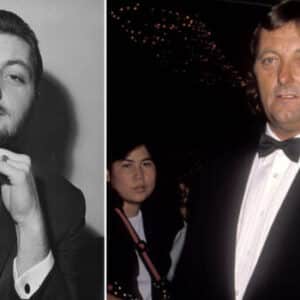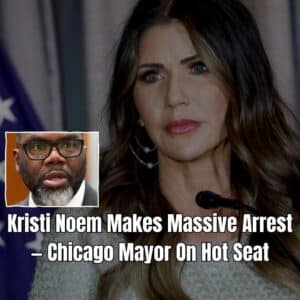When my father, Richard, died, it felt like the floor gave way and I dropped through the center of my life. I was twenty-eight, too old to be orphaned and too young to be without the person who steadied me. He had never needed grand gestures to prove love—just a note under my coffee mug, a late-night drive with the windows down, a hug that lingered a heartbeat longer than necessary. Even when money was tight, he made room for joy. Losing him wasn’t just grief; it was losing my compass.
When he got sick, I learned what devotion really means. Classes, odd jobs, bills, long corridors that smelled like antiseptic—it all blurred together. I scheduled appointments, cooked, coaxed him to eat, walked slow laps of the hallway with his hand in mine. He told me stories I’d never heard and fears he’d never spoken. He called me his light. My sister, Emily, came twice. She hovered at the foot of the bed with her phone buzzing in her palm and reasons why hospitals made her nervous. I stopped expecting her and focused on breathing with him through the pain.
After the funeral, we sat with the lawyer. My mother folded her hands in her lap and stared at nothing. The reading was simple. Dad left me $85,000—enough to clear my debts and begin a life without panic. Inside the envelope was a letter in his handwriting: “You gave up so much to care for me. This is yours. Build your future, my girl.” Emily received a jewelry box of family heirlooms—pieces chosen for sentiment, not cash value. It felt fair and tender. It felt like him.
For a while, I believed his wishes would hold. Then Emily’s engagement went from hopeful to operatic. Her guest list ballooned, the venue sprouted chandeliers, and her dress cost more than my year’s rent. Champagne fountains. An orchestra. Fireworks. She and her fiancé didn’t have that kind of money. But Emily had already decided who did.
The calls started syrupy. “Dad would want us to have our dream wedding. You could help a little, right?” When I said no, the tone curdled. “I didn’t think you’d be so selfish.” Some nights she pleaded; other nights she accused me of manipulating Dad. Two Emilys: the charmer and the knife.
One evening she appeared uninvited, heels clicking down my hall. “This is the most important day of my life,” she said, arms folded. I kept my voice level. “And this was Dad’s last gift to me. He wrote it himself.” She rolled her eyes, announced she was using my bathroom, and slammed the door on her way out. I went back to chopping vegetables, trying to steady my hands.
Later, I found the safe in my closet ajar. Papers askew. Felt lining scuffed. The envelope with the cashier’s check—gone. I stood there with the hollow where it had been and felt my father’s careful loops of ink unspool inside my chest. Years ago I’d given Emily the code during one of her crises. She’d used it now. The theft hurt, but the certainty that she would hurt me like that hurt more.
Rage burned hot and brief. Then a cooler voice took over. Don’t scream. Don’t beg. Do this right. I filed a police report. I called my lawyer. I handed over the letter from Dad, the will, the safe records, the text messages. Things moved quickly because the will left no room to wriggle. The court ordered restitution. Quietly, firmly, on paper.
And then I prepared a gift.
Emily’s wedding looked like a fairy tale dipped in gold. The ballroom glittered; the air smelled like roses and money. I found her before the ceremony smoothing her gown in a mirrored corridor, smiling at herself like a promise. “Isn’t it perfect?” she breathed. “This is everything Dad would’ve wanted.” I told her I wanted her to have a beautiful day. It was the truth, just not the version she imagined.
After dinner, when the lights softened for the presentation of gifts, I carried a gold-wrapped box to the stage. Guests leaned forward. Emily’s smile said she thought she’d won. I opened the lid and lifted a frame lined with black velvet: my father’s letter. His handwriting filled the glass like a benediction.
“I want to share something,” I said into the microphone. The DJ faded the music. “This is a letter my father wrote before he passed. He wanted his wishes to be clear.” I read aloud the lines he’d written to me—about sacrifice, about building my future, about not letting anyone tell me otherwise. A murmur rippled through the room. Emily’s color drained; her fiancé shifted in place. Then, from the tables: “Is that how they paid for this?” “She stole from her sister?” “What kind of family—?”
Emily slammed her bouquet down. “Enough about money. This is a beautiful wedding. My father would’ve wanted me happy.” I reached into the box again and withdrew a second envelope.
“This is a court ruling,” I said, steady. “After the money disappeared, I filed a claim. The evidence was clear. The court affirmed what Dad wrote: these savings belonged to me. Emily has been ordered to return every dollar.”
This time the gasp was unanimous. Her in-laws stared. Connor turned to her. “You said your sister gifted it,” he hissed. I set the ruling beside the letter.
“Tonight sparkles,” I said, “but the truth is simple. This wasn’t funded by love. It was built on theft—from the man we’re supposed to honor.”
“You ruined Dad’s wishes,” Emily spat.
“No,” I answered. “You did that when you chose spectacle over respect. You could have asked for help the way a sister asks. You chose to steal. Now everyone knows.”
I left before the whispers turned into scenes. The cool night air felt like water over fire. Behind me, the ballroom swallowed its own echo.
Restitution came in payments, not apologies. She sends amounts in careful increments, each one a reminder that consequences don’t disappear with confetti. The story follows her the way perfume does—faint at first, then cloying. People don’t talk about the fireworks now. They talk about a letter in a frame, a ruling in an envelope, a bride who mistook entitlement for love.
On a quiet Sunday I sat on the park bench where Dad and I used to feed ducks the ends of our bread. The pond wrinkled, sunlight scattered, and the ducks waddled toward me with their bossy little steps. A boy on the next bench asked if they always come that close. “They do,” I said, handing him the rest of the crusts. “They remember who’s kind to them.”
Grief softened, not because a judge agreed with me, but because I realized what couldn’t be stolen. Justice was good; peace was better. My father’s voice—gentle, amused, proud—threaded through the afternoon. His last gift had never been a number on a check. It was the permission to choose myself without apology—and the certainty that love, the real kind he practiced every day, is the only inheritance that doesn’t run out.





